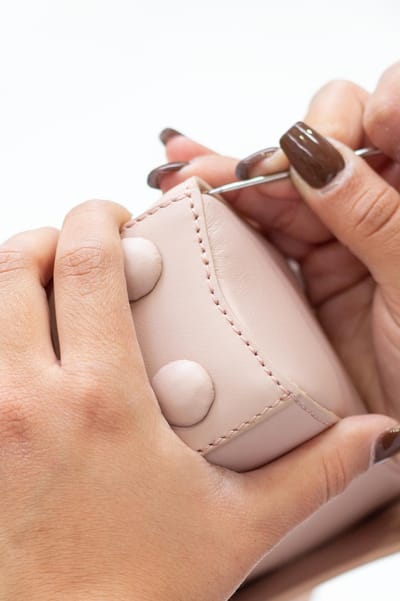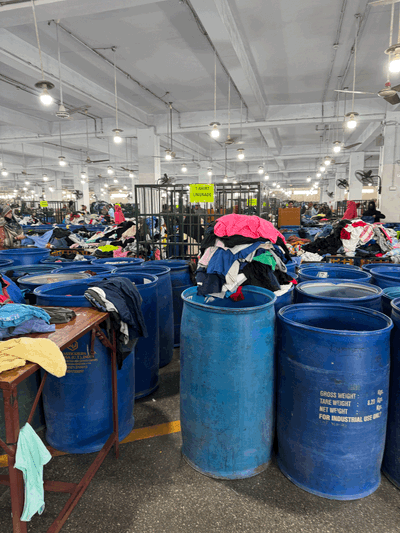In an era where sustainability and transparency are paramount, the fashion industry is embracing innovation to meet consumer demands and regulatory requirements. Enter the Digital Product Passport (DPP), a technological advancement poised to revolutionise how we perceive and interact with our garments. This cutting-edge solution holds the potential to make the industry more ethical, transparent, and environmentally friendly, while offering consumers unprecedented insight into their clothing choices.
What Are Digital Product Passports?
A Digital Product Passport is essentially a digital document that provides a comprehensive record of a garment's entire lifecycle, from the sourcing of raw materials to its final disposal. These passports, often accessed via scannable QR codes or embedded tags, store essential details about the product’s material composition, its environmental impact, and instructions for recycling or repair. This wealth of information equips consumers with the knowledge they need to make informed purchasing decisions and fosters trust between brands and their customers.
The idea is gaining traction globally, particularly in Europe. The European Union’s Ecodesign for Sustainable Products Regulation (ESPR) aims to make DPPs a standard across all industries, including fashion, by 2030. According to JustStyle, this initiative is part of a broader effort to establish a circular economy where waste is minimised, and resources are reused as much as possible.


Images courtesy of Coach.
How Do Digital Product Passports Work?
The practical application of DPPs lies in integrating scannable codes or tags into clothing items. When a consumer scans the QR code with their smartphone, they can access a trove of information. This includes:
- Details of the raw materials used.
- The environmental footprint of the production process.
- Guidance for garment care to prolong its lifespan.
- Instructions for recycling or disposing of the product responsibly.
This system ensures that information is readily available at every stage of the garment’s lifecycle, benefiting consumers, brands, and the planet.
Why Digital Passports Are Good for Fashion
The introduction of DPPs marks a pivotal moment for the fashion industry, which has long faced scrutiny for its environmental and ethical shortcomings. According to Arianee, a digital identity platform, these passports offer several key benefits:
- Transparency and Accountability
For brands, DPPs provide an opportunity to showcase verified information about their supply chain practices. This includes sourcing of materials, labour conditions, and carbon emissions. Transparency like this can significantly enhance a brand’s reputation and foster greater trust among consumers. - Facilitating Circular Economies
DPPs are a vital tool for advancing circular business models. By providing crucial product details throughout its lifecycle, DPPs enable brands and consumers to engage in sustainable practices such as garment resale, repair, and recycling.For example, Coach recently partnered with Poshmark to enable instant resale of their Coachtopia products. By leveraging digital passports provided by Eon, consumers can easily list items for resale, with all necessary product information and images automatically uploaded. This simplifies the resale process and promotes a sustainable, circular economy. You can read more about this initiative on Vogue Business. - Meeting Consumer Demand
Modern consumers are increasingly concerned about sustainability. A survey highlighted by Vogue Business found that 56% of respondents would be more likely to buy second-hand items if DPPs were available. This shows that digital passports can help bridge the gap between sustainability-conscious consumers and the resale market. - Regulatory Compliance
With new regulations like the EU's ESPR on the horizon, brands must adapt to remain competitive. Digital Product Passports can serve as a straightforward way for businesses to comply with these upcoming requirements while demonstrating their commitment to sustainability.

Leading the Way: Early Adopters of Digital Product Passports
Some major players in the fashion industry are already integrating DPPs into their business models. The Aura Blockchain Consortium, which includes luxury brands such as Dior, Prada, and Cartier, is collaborating to create a standardised framework for digital identities. This initiative ensures transparency, strengthens anti-counterfeiting measures, and promotes sustainability across the luxury sector. Learn more about their work on Vogue Business.
Similarly, digital-first platforms like Green Story are advocating for DPPs as a way to track and verify the environmental impact of garments. These systems can provide actionable insights to consumers, further aligning brands with the values of today’s eco-conscious shoppers.
Challenges to Consider
While DPPs are undeniably promising, implementing them on a large scale comes with its challenges. Smaller brands may face technical and financial barriers to adoption. Additionally, there is a need for standardisation across the industry to ensure consistency in how information is presented.
Brands will also need to invest in robust data management systems to store and verify the vast amounts of information required for DPPs. As noted by Just Style, collaboration between brands, governments, and tech providers will be critical to overcoming these hurdles.
The Future of Fashion Is Transparent
As the fashion industry continues to evolve, the integration of Digital Product Passports represents a significant step towards greater transparency, sustainability, and consumer engagement. By empowering consumers with detailed insights into a garment's lifecycle, DPPs have the potential to transform how we view and interact with fashion.
For consumers, DPPs offer the reassurance that their purchases align with their values. For brands, they represent a chance to build trust, comply with regulations, and drive innovation in sustainability. And for the planet, DPPs provide a pathway to reducing waste and conserving resources, advancing the goal of a truly circular economy.
As the world moves towards a more responsible future, digital passports for clothing might just be the game-changer we need to unlock the full potential of sustainable fashion.





